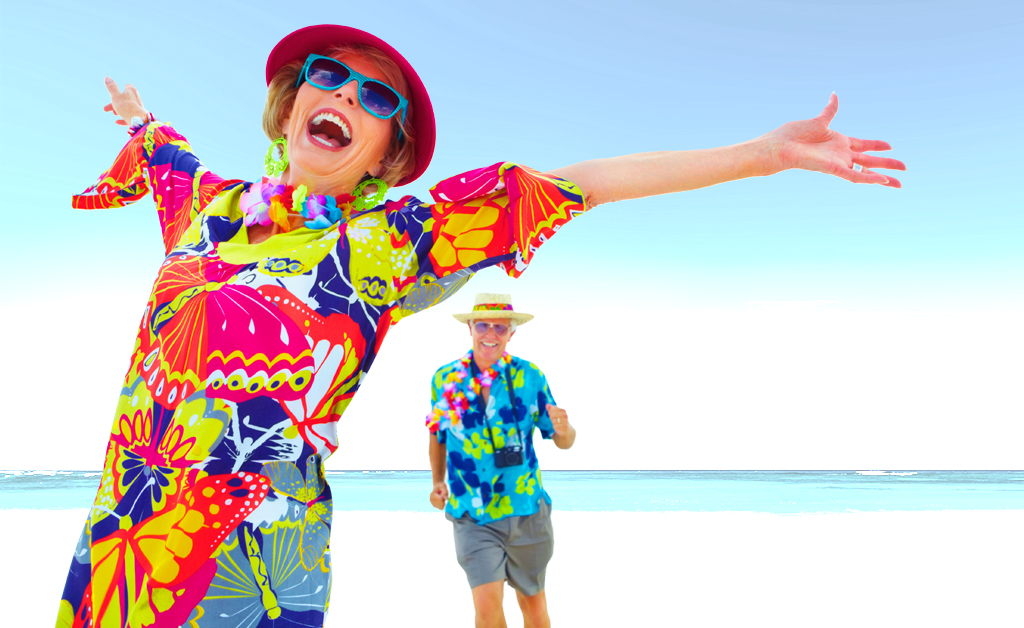 Blog
Blog As the warmth of summer approaches, now is the perfect time for seniors to plan for the season while prioritizing health and safety. The summer heat can pose some challenges, but there are simple precautions you can take to ensure a worry-free experience. By following these guidelines, you can enjoy the long days and create positive memories while keeping your well-being in check.
Embrace the Evening
Temperatures may fluctuate throughout the day, but the sun is strongest between 10:00 a.m. and 4:00 p.m., so try to avoid being outside during that time. If you absolutely have to be outdoors, look for shade or find a place with a breeze (a breezy, shady place is ideal). Instead of being outdoors in the daytime, remember, most summer evenings are perfect times for enjoying what summer offers.
Stay Cool
Air conditioning remains one of the best ways to beat the summer heat. According to the Centers for Disease Control, not only does it keep your home comfortable, but an efficient, well-maintained air conditioner improves air quality and helps avoid heat-related illnesses. If you have access to air conditioning, take advantage of its cooling benefits. If AC is not available, keep cool by using fans, closing blinds and curtains, and limiting physical activity. Drinking cool water and curbing stove use help, too.
Dress Light
What you choose to wear determines your comfort level, especially on hot days. Loose, comfortable clothing works best to regulate body temperature. If that clothing is made of natural materials like cotton and linen, all the better. Lighter colors reflect heat (and repel bugs), so stock up on those for the summer. Don’t forget to top it off with a wide-brimmed hat for added protection (and style).
Rub It In
The sun and bugs can dampen the summer spirit, but with sunscreen and insect repellant, you can keep them at bay. Protect your skin by applying sunscreen with a sun protection factor (SPF) of 30 or above whenever you are exposed to the sun. Reapply sunscreen when swimming or excessive sweating. For bugs, there are many insect repellants on the market, both natural and manufactured. The New York Times recently published a study on recommended repellants. When applying sunscreen and insect repellant, remember to apply sunscreen first for the best protection.
Mind Your Medications
If you take any medications, learn exactly how they react in the sun and heat. Some medications can cause higher skin-sensitivity to the sun, lower blood pressure, and dehydration.
Become familiar with the signs of heat exhaustion, hyperthermia, dehydration, and heat stroke: disorientation, dry skin, excessive tiredness, headache, lethargy, nausea, a flushed face, rapid pulse, dizziness, confusion, and high body temperature. If you have any of these, immediately get to a cool place. CareMax locations have a Call Us First policy for this type of occurrence, where patients call and speak to a medical professional before dialing 911 or going to the emergency room; however, if your temperature goes above 102 degrees, call 911 immediately.
Hydrate, Hydrate, Hydrate
Staying hydrated is crucial for overall well-being, particularly in summer when the risk of dehydration increases, especially among seniors. While the standard recommendation is to drink at least eight glasses of water per day, amounts can vary, depending on some medications and chronic issues. Ask your physician how much water you should have each day.
The easiest way to ensure you stay hydrated is to carry a water bottle with you whenever possible. Additionally, include water-rich fruits and vegetables such as cucumbers, watermelon, lettuce, strawberries, tomatoes, and celery in your diet. Alcohol and caffeine can dehydrate you, so avoid them when the heat is on.
Summer Happens
Even when you’ve done everything you can to avoid negative reactions to heat, sometimes it happens, anyway. If you’re prone to the dangers of sun and heat, keep a summer aid kit handy. Here’s a list of suggested items to include:
The heat is coming, but if you follow these tips, a safer summer is ensured, no matter your age.